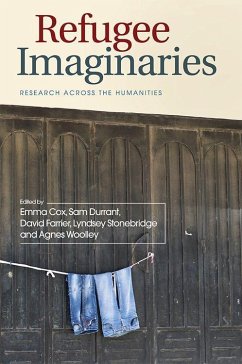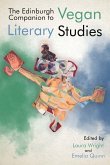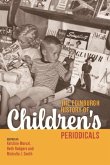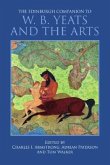Refugee Imaginaries
Research Across the Humanities
Herausgeber: Cox, Emma; Woolley, Agnes; Stonebridge, Lyndsey; Farrier, David; Durrant, Sam
Refugee Imaginaries
Research Across the Humanities
Herausgeber: Cox, Emma; Woolley, Agnes; Stonebridge, Lyndsey; Farrier, David; Durrant, Sam
- Gebundenes Buch
- Merkliste
- Auf die Merkliste
- Bewerten Bewerten
- Teilen
- Produkt teilen
- Produkterinnerung
- Produkterinnerung
Charts new directions for interdisciplinary research on refugee writing and representation The refugee has emerged as one of the key figures of the twenty-first-century. This book explores how refugees imagine the world and how the world imagines them. It demonstrates the ways in which refugees have been written into being by international law, governmental and non-governmental bodies and the media, and foregrounds the role of the arts and humanities in imagining, historicising and protesting the experiences of forced migration and statelessness. Including thirty-two newly written chapters on…mehr
Andere Kunden interessierten sich auch für
![The Edinburgh Companion to Vegan Literary Studies The Edinburgh Companion to Vegan Literary Studies]() The Edinburgh Companion to Vegan Literary Studies164,99 €
The Edinburgh Companion to Vegan Literary Studies164,99 €![The Edinburgh History of Children's Periodicals The Edinburgh History of Children's Periodicals]() The Edinburgh History of Children's Periodicals222,99 €
The Edinburgh History of Children's Periodicals222,99 €![The Edinburgh History of the Transnational British Press in Non-Anglophone Countries, 1800-1914 The Edinburgh History of the Transnational British Press in Non-Anglophone Countries, 1800-1914]() The Edinburgh History of the Transnational British Press in Non-Anglophone Countries, 1800-1914189,99 €
The Edinburgh History of the Transnational British Press in Non-Anglophone Countries, 1800-1914189,99 €![The Edinburgh Companion to W. B. Yeats and the Arts The Edinburgh Companion to W. B. Yeats and the Arts]() The Edinburgh Companion to W. B. Yeats and the Arts189,99 €
The Edinburgh Companion to W. B. Yeats and the Arts189,99 €![A Supplementary Catalogue Of Bengali Books In The Library Of The British Museum A Supplementary Catalogue Of Bengali Books In The Library Of The British Museum]() J. F. BlumhardtA Supplementary Catalogue Of Bengali Books In The Library Of The British Museum36,99 €
J. F. BlumhardtA Supplementary Catalogue Of Bengali Books In The Library Of The British Museum36,99 €![A Supplementary Catalogue Of Hindustani Books In The Library Of The British Museum A Supplementary Catalogue Of Hindustani Books In The Library Of The British Museum]() J. F. BlumhardtA Supplementary Catalogue Of Hindustani Books In The Library Of The British Museum43,99 €
J. F. BlumhardtA Supplementary Catalogue Of Hindustani Books In The Library Of The British Museum43,99 €![Contemporary Authors Contemporary Authors]() Contemporary Authors461,99 €
Contemporary Authors461,99 €-
-
-
Charts new directions for interdisciplinary research on refugee writing and representation The refugee has emerged as one of the key figures of the twenty-first-century. This book explores how refugees imagine the world and how the world imagines them. It demonstrates the ways in which refugees have been written into being by international law, governmental and non-governmental bodies and the media, and foregrounds the role of the arts and humanities in imagining, historicising and protesting the experiences of forced migration and statelessness. Including thirty-two newly written chapters on representations by and of refugees from leading researchers in the field, Refugee Imaginaries establishes the case for placing the study of the refugee at the centre of contemporary critical enquiry. Emma Cox is Reader in Drama and Theatre at Royal Holloway, University of London. Sam Durrant is Associate Professor at the University of Leeds. David Farrier is Senior Lecturer at the University of Edinburgh. Lyndsey Stonebridge is Professor of Humanities and Human Rights at the University of Birmingham. Agnes Woolley is Lecturer in Transnational Literature and Migration Cultures at Birkbeck, University of London.
Produktdetails
- Produktdetails
- Verlag: Edinburgh University Press
- Seitenzahl: 544
- Erscheinungstermin: 10. Dezember 2019
- Englisch
- Abmessung: 231mm x 170mm x 38mm
- Gewicht: 1111g
- ISBN-13: 9781474443197
- ISBN-10: 1474443192
- Artikelnr.: 58602210
- Herstellerkennzeichnung
- Libri GmbH
- Europaallee 1
- 36244 Bad Hersfeld
- gpsr@libri.de
- Verlag: Edinburgh University Press
- Seitenzahl: 544
- Erscheinungstermin: 10. Dezember 2019
- Englisch
- Abmessung: 231mm x 170mm x 38mm
- Gewicht: 1111g
- ISBN-13: 9781474443197
- ISBN-10: 1474443192
- Artikelnr.: 58602210
- Herstellerkennzeichnung
- Libri GmbH
- Europaallee 1
- 36244 Bad Hersfeld
- gpsr@libri.de
Emma Cox is Reader in Drama and Theatre at Royal Holloway, University of London. She is the author of Performing Noncitizenship: Asylum Seekers in Australian Theatre, Film and Activism (Anthem, 2015), Theatre & Migration (Palgrave, 2014), and the edited play collection Staging Asylum (Currency, 2013). Sam Durrant is Associate Professor of Postcolonial Literature at the University of Leeds. He is the author of Postcolonial Narrative and the Work of Mourning (State University of New York Press, 2004) and co-editor of Essays in Migratory Aesthetics (Rodopi, 2007) and The Future of Trauma Theory: Contemporary Literary and Cultural Criticism (Routledge, 2014). He is currently working on a monograph on animist ecologies in contemporary African literature. David Farrier is Senior Lecturer in Modern and Contemporary Literature at the University of Edinburgh. He is the author of Anthropocene Poetics (University of Minnesota Press, 2019) and Postcolonial Asylum, (Liverpool University Press, 2011). Professor Lyndsey Stonebridge is Professor of Humanities and Human Rights at the University of Birmingham. Her recent books are Placeless People: Writing, Rights and Refugees (2018) and The Judicial Imagination: Writing after Nuremberg (2011), winner of the British Academy Rose Mary Crawshay Prize. Other titles include: The Destructive Element (1998), Reading Melanie Klein (1998) and The Writing of Anxiety (2007). She is currently working on a collaborative project, Refugee Hosts, and finishing a short book, Rights and Writing: Literature in the Age of Human Rights. She is co-editor of Oxford University Press's Mid-Century Series, and has held visiting positions at Cornell University and the University of Sydney. She is a regular media commentator, and tweets about literature, history, and human rights @lyndseystonebri Agnes Woolley is Lecturer in Transnational Literature and Migration Cultures at Birkbeck, University of London. Her research interests are in contemporary and postcolonial literature, theatre and film, with a focus on concepts of migration and diaspora. She is the author of Contemporary Asylum Narratives: Representing Refugees in the Twenty-First Century (Palgrave Macmillan, 2014) and has published extensively on asylum, refugee arts, climate change and contemporary literature. She is a regular contributor to openDemocracy, reporting on migration issues.
Introduction, Emma Cox, Sam Durrant, David Farrier, Lyndsey Stonebridge and
Agnes Woolley
Part I. Refugee Genealogies
Introduction, Lyndsey Stonebridge
1. Refugees in Modern World History, Peter Gatrell
2. Theories of the Refugee, After Hannah Arendt, Ned Curthoys
3. A Genealogy of Refugee Writing, Arthur Rose
4. Genres of Refugee Writing, Anna Bernard
Part II. Asylum
Introduction, Agnes Woolley
1. Sexual and Gender-Based Asylum and the Queering of Global Space:
Reading Desire, Writing Identity and the Unconventionality of the
Law, Sudeep Dasgupta
2. Morality and Law in the Context of Asylum Claims, Anthony Good
3. The Politics of the Empty Gesture: Frameworks of Sanctuary, Theatre
and The City, Alison Jeffers
Part III. The Border
Introduction, Emma Cox
1. Docu/Fiction and the Aesthetics of the Border, Agnes Woolley
2. Crossings, Bodies, Behaviours, Liam Connell
3. The Digital Border: the Media of Refugee Reception during the 2015
Migration 'Crisis', Lilie Chouliaraki and Myria Georgiou
Part IV. Intra/Extraterritorial Displacement
Introduction, Sam Durrant
1. The 'Dead Road', Displacement, and the Recovery of Life-in-Common:
Narrating the African Conflict Zone, Maureen Moynagh
2. 'What do you do when you cannot leave and cannot return?': Memoir and
the Aporia of Refuge in Hisham Matar's The Return, Norbert Bugeja
3. 'A Man Carries His Door': Affective Displacement and Refugee Poetry,
Douglas Robinson
4. Reframing Climate Migration: A Case for Constellational Thinking in
the Writing of Teju Cole, Byron Santangelo
Part V. The Camp
Introduction, Emma Cox
1. Memories and Meanings of Refugee Camps (and more-than-camps), Elena
Fiddian-Qasmiyeh
2. Writing the Camp: Death, Dying and Dialects, Yousif M. Qasmiyeh
3. Reel Refugees: Inside and Outside the Camp, Madelaine Hron
Part VI. Sea Crossings
Introduction, David Farrier
1. Zoopolitics of Asylum Seeker Marine Deaths and Cultures of
Anthropophagy, Joseph Pugliese
2. The Mediterranean Sieve, Spring and Seametery, Hakim Abderrezak
3. 'Island is no arrival': Migrants' Islandment at the Borders of
Europe, Mariangela Palladino
4. At Sea: Hope as Survival and Sustenance for Refugees, Parvati Nair
Part VII. Digital Territories
Introduction, Agnes Woolley
1. Networked narratives: Online Self-Expression from a Palestinian
Refugee Camp in Lebanon, Mary Mitchell
2. Refugee writing, refugee history: Locating the Refugee Archive in the
Making of a History of the Syrian War, Dima Saber and Paul Long
3. Digital Biopolitics, Humanitarianism and the Datafication of
Refugees, Btihaj Ajana
4. The Messenger: Refugee Testimony and the Search for Adequate Witness,
Gillian Whitlock & Rosanne Kennedy
Part VIII. Home
Introduction, David Farrier
1. Home and Law: Impersonality and Worldlessness in J. M. Coetzee's The
Childhood of Jesus and Jenny Erpenbeck's Gehen, Ging, Gegangen,
Daniel Hartley
2. Autobiography of a Ghost: Home and Haunting in Viet Thanh Nguyen's
The Refugees, Mireille Rosello
3. Homing as Co-creative Work: When Home Becomes a Village, Misha Myers
and Mariam Issa
Part IX. Open Cities
Introduction, Sam Durrant
1. 'Another Politics of the City': Urban Practices of Refuge, Advocacy
and Activism, Jonathan Darling
2. The Welcome City?, Hannah Lewis and Louise Waite
3. In the City's Public Spaces: Movements of Witnesses and the Formation
of Moral Community, André Grahle
4. Open/Closed Cities: Cosmopolitan Melancholia and the Disavowal of
Refugee Life, Sam Durrant
Agnes Woolley
Part I. Refugee Genealogies
Introduction, Lyndsey Stonebridge
1. Refugees in Modern World History, Peter Gatrell
2. Theories of the Refugee, After Hannah Arendt, Ned Curthoys
3. A Genealogy of Refugee Writing, Arthur Rose
4. Genres of Refugee Writing, Anna Bernard
Part II. Asylum
Introduction, Agnes Woolley
1. Sexual and Gender-Based Asylum and the Queering of Global Space:
Reading Desire, Writing Identity and the Unconventionality of the
Law, Sudeep Dasgupta
2. Morality and Law in the Context of Asylum Claims, Anthony Good
3. The Politics of the Empty Gesture: Frameworks of Sanctuary, Theatre
and The City, Alison Jeffers
Part III. The Border
Introduction, Emma Cox
1. Docu/Fiction and the Aesthetics of the Border, Agnes Woolley
2. Crossings, Bodies, Behaviours, Liam Connell
3. The Digital Border: the Media of Refugee Reception during the 2015
Migration 'Crisis', Lilie Chouliaraki and Myria Georgiou
Part IV. Intra/Extraterritorial Displacement
Introduction, Sam Durrant
1. The 'Dead Road', Displacement, and the Recovery of Life-in-Common:
Narrating the African Conflict Zone, Maureen Moynagh
2. 'What do you do when you cannot leave and cannot return?': Memoir and
the Aporia of Refuge in Hisham Matar's The Return, Norbert Bugeja
3. 'A Man Carries His Door': Affective Displacement and Refugee Poetry,
Douglas Robinson
4. Reframing Climate Migration: A Case for Constellational Thinking in
the Writing of Teju Cole, Byron Santangelo
Part V. The Camp
Introduction, Emma Cox
1. Memories and Meanings of Refugee Camps (and more-than-camps), Elena
Fiddian-Qasmiyeh
2. Writing the Camp: Death, Dying and Dialects, Yousif M. Qasmiyeh
3. Reel Refugees: Inside and Outside the Camp, Madelaine Hron
Part VI. Sea Crossings
Introduction, David Farrier
1. Zoopolitics of Asylum Seeker Marine Deaths and Cultures of
Anthropophagy, Joseph Pugliese
2. The Mediterranean Sieve, Spring and Seametery, Hakim Abderrezak
3. 'Island is no arrival': Migrants' Islandment at the Borders of
Europe, Mariangela Palladino
4. At Sea: Hope as Survival and Sustenance for Refugees, Parvati Nair
Part VII. Digital Territories
Introduction, Agnes Woolley
1. Networked narratives: Online Self-Expression from a Palestinian
Refugee Camp in Lebanon, Mary Mitchell
2. Refugee writing, refugee history: Locating the Refugee Archive in the
Making of a History of the Syrian War, Dima Saber and Paul Long
3. Digital Biopolitics, Humanitarianism and the Datafication of
Refugees, Btihaj Ajana
4. The Messenger: Refugee Testimony and the Search for Adequate Witness,
Gillian Whitlock & Rosanne Kennedy
Part VIII. Home
Introduction, David Farrier
1. Home and Law: Impersonality and Worldlessness in J. M. Coetzee's The
Childhood of Jesus and Jenny Erpenbeck's Gehen, Ging, Gegangen,
Daniel Hartley
2. Autobiography of a Ghost: Home and Haunting in Viet Thanh Nguyen's
The Refugees, Mireille Rosello
3. Homing as Co-creative Work: When Home Becomes a Village, Misha Myers
and Mariam Issa
Part IX. Open Cities
Introduction, Sam Durrant
1. 'Another Politics of the City': Urban Practices of Refuge, Advocacy
and Activism, Jonathan Darling
2. The Welcome City?, Hannah Lewis and Louise Waite
3. In the City's Public Spaces: Movements of Witnesses and the Formation
of Moral Community, André Grahle
4. Open/Closed Cities: Cosmopolitan Melancholia and the Disavowal of
Refugee Life, Sam Durrant
Introduction, Emma Cox, Sam Durrant, David Farrier, Lyndsey Stonebridge and
Agnes Woolley
Part I. Refugee Genealogies
Introduction, Lyndsey Stonebridge
1. Refugees in Modern World History, Peter Gatrell
2. Theories of the Refugee, After Hannah Arendt, Ned Curthoys
3. A Genealogy of Refugee Writing, Arthur Rose
4. Genres of Refugee Writing, Anna Bernard
Part II. Asylum
Introduction, Agnes Woolley
1. Sexual and Gender-Based Asylum and the Queering of Global Space:
Reading Desire, Writing Identity and the Unconventionality of the
Law, Sudeep Dasgupta
2. Morality and Law in the Context of Asylum Claims, Anthony Good
3. The Politics of the Empty Gesture: Frameworks of Sanctuary, Theatre
and The City, Alison Jeffers
Part III. The Border
Introduction, Emma Cox
1. Docu/Fiction and the Aesthetics of the Border, Agnes Woolley
2. Crossings, Bodies, Behaviours, Liam Connell
3. The Digital Border: the Media of Refugee Reception during the 2015
Migration 'Crisis', Lilie Chouliaraki and Myria Georgiou
Part IV. Intra/Extraterritorial Displacement
Introduction, Sam Durrant
1. The 'Dead Road', Displacement, and the Recovery of Life-in-Common:
Narrating the African Conflict Zone, Maureen Moynagh
2. 'What do you do when you cannot leave and cannot return?': Memoir and
the Aporia of Refuge in Hisham Matar's The Return, Norbert Bugeja
3. 'A Man Carries His Door': Affective Displacement and Refugee Poetry,
Douglas Robinson
4. Reframing Climate Migration: A Case for Constellational Thinking in
the Writing of Teju Cole, Byron Santangelo
Part V. The Camp
Introduction, Emma Cox
1. Memories and Meanings of Refugee Camps (and more-than-camps), Elena
Fiddian-Qasmiyeh
2. Writing the Camp: Death, Dying and Dialects, Yousif M. Qasmiyeh
3. Reel Refugees: Inside and Outside the Camp, Madelaine Hron
Part VI. Sea Crossings
Introduction, David Farrier
1. Zoopolitics of Asylum Seeker Marine Deaths and Cultures of
Anthropophagy, Joseph Pugliese
2. The Mediterranean Sieve, Spring and Seametery, Hakim Abderrezak
3. 'Island is no arrival': Migrants' Islandment at the Borders of
Europe, Mariangela Palladino
4. At Sea: Hope as Survival and Sustenance for Refugees, Parvati Nair
Part VII. Digital Territories
Introduction, Agnes Woolley
1. Networked narratives: Online Self-Expression from a Palestinian
Refugee Camp in Lebanon, Mary Mitchell
2. Refugee writing, refugee history: Locating the Refugee Archive in the
Making of a History of the Syrian War, Dima Saber and Paul Long
3. Digital Biopolitics, Humanitarianism and the Datafication of
Refugees, Btihaj Ajana
4. The Messenger: Refugee Testimony and the Search for Adequate Witness,
Gillian Whitlock & Rosanne Kennedy
Part VIII. Home
Introduction, David Farrier
1. Home and Law: Impersonality and Worldlessness in J. M. Coetzee's The
Childhood of Jesus and Jenny Erpenbeck's Gehen, Ging, Gegangen,
Daniel Hartley
2. Autobiography of a Ghost: Home and Haunting in Viet Thanh Nguyen's
The Refugees, Mireille Rosello
3. Homing as Co-creative Work: When Home Becomes a Village, Misha Myers
and Mariam Issa
Part IX. Open Cities
Introduction, Sam Durrant
1. 'Another Politics of the City': Urban Practices of Refuge, Advocacy
and Activism, Jonathan Darling
2. The Welcome City?, Hannah Lewis and Louise Waite
3. In the City's Public Spaces: Movements of Witnesses and the Formation
of Moral Community, André Grahle
4. Open/Closed Cities: Cosmopolitan Melancholia and the Disavowal of
Refugee Life, Sam Durrant
Agnes Woolley
Part I. Refugee Genealogies
Introduction, Lyndsey Stonebridge
1. Refugees in Modern World History, Peter Gatrell
2. Theories of the Refugee, After Hannah Arendt, Ned Curthoys
3. A Genealogy of Refugee Writing, Arthur Rose
4. Genres of Refugee Writing, Anna Bernard
Part II. Asylum
Introduction, Agnes Woolley
1. Sexual and Gender-Based Asylum and the Queering of Global Space:
Reading Desire, Writing Identity and the Unconventionality of the
Law, Sudeep Dasgupta
2. Morality and Law in the Context of Asylum Claims, Anthony Good
3. The Politics of the Empty Gesture: Frameworks of Sanctuary, Theatre
and The City, Alison Jeffers
Part III. The Border
Introduction, Emma Cox
1. Docu/Fiction and the Aesthetics of the Border, Agnes Woolley
2. Crossings, Bodies, Behaviours, Liam Connell
3. The Digital Border: the Media of Refugee Reception during the 2015
Migration 'Crisis', Lilie Chouliaraki and Myria Georgiou
Part IV. Intra/Extraterritorial Displacement
Introduction, Sam Durrant
1. The 'Dead Road', Displacement, and the Recovery of Life-in-Common:
Narrating the African Conflict Zone, Maureen Moynagh
2. 'What do you do when you cannot leave and cannot return?': Memoir and
the Aporia of Refuge in Hisham Matar's The Return, Norbert Bugeja
3. 'A Man Carries His Door': Affective Displacement and Refugee Poetry,
Douglas Robinson
4. Reframing Climate Migration: A Case for Constellational Thinking in
the Writing of Teju Cole, Byron Santangelo
Part V. The Camp
Introduction, Emma Cox
1. Memories and Meanings of Refugee Camps (and more-than-camps), Elena
Fiddian-Qasmiyeh
2. Writing the Camp: Death, Dying and Dialects, Yousif M. Qasmiyeh
3. Reel Refugees: Inside and Outside the Camp, Madelaine Hron
Part VI. Sea Crossings
Introduction, David Farrier
1. Zoopolitics of Asylum Seeker Marine Deaths and Cultures of
Anthropophagy, Joseph Pugliese
2. The Mediterranean Sieve, Spring and Seametery, Hakim Abderrezak
3. 'Island is no arrival': Migrants' Islandment at the Borders of
Europe, Mariangela Palladino
4. At Sea: Hope as Survival and Sustenance for Refugees, Parvati Nair
Part VII. Digital Territories
Introduction, Agnes Woolley
1. Networked narratives: Online Self-Expression from a Palestinian
Refugee Camp in Lebanon, Mary Mitchell
2. Refugee writing, refugee history: Locating the Refugee Archive in the
Making of a History of the Syrian War, Dima Saber and Paul Long
3. Digital Biopolitics, Humanitarianism and the Datafication of
Refugees, Btihaj Ajana
4. The Messenger: Refugee Testimony and the Search for Adequate Witness,
Gillian Whitlock & Rosanne Kennedy
Part VIII. Home
Introduction, David Farrier
1. Home and Law: Impersonality and Worldlessness in J. M. Coetzee's The
Childhood of Jesus and Jenny Erpenbeck's Gehen, Ging, Gegangen,
Daniel Hartley
2. Autobiography of a Ghost: Home and Haunting in Viet Thanh Nguyen's
The Refugees, Mireille Rosello
3. Homing as Co-creative Work: When Home Becomes a Village, Misha Myers
and Mariam Issa
Part IX. Open Cities
Introduction, Sam Durrant
1. 'Another Politics of the City': Urban Practices of Refuge, Advocacy
and Activism, Jonathan Darling
2. The Welcome City?, Hannah Lewis and Louise Waite
3. In the City's Public Spaces: Movements of Witnesses and the Formation
of Moral Community, André Grahle
4. Open/Closed Cities: Cosmopolitan Melancholia and the Disavowal of
Refugee Life, Sam Durrant








